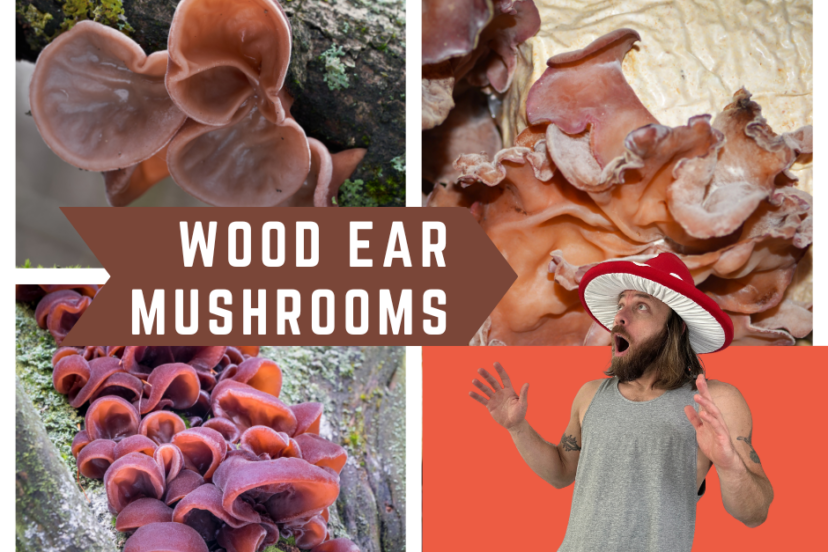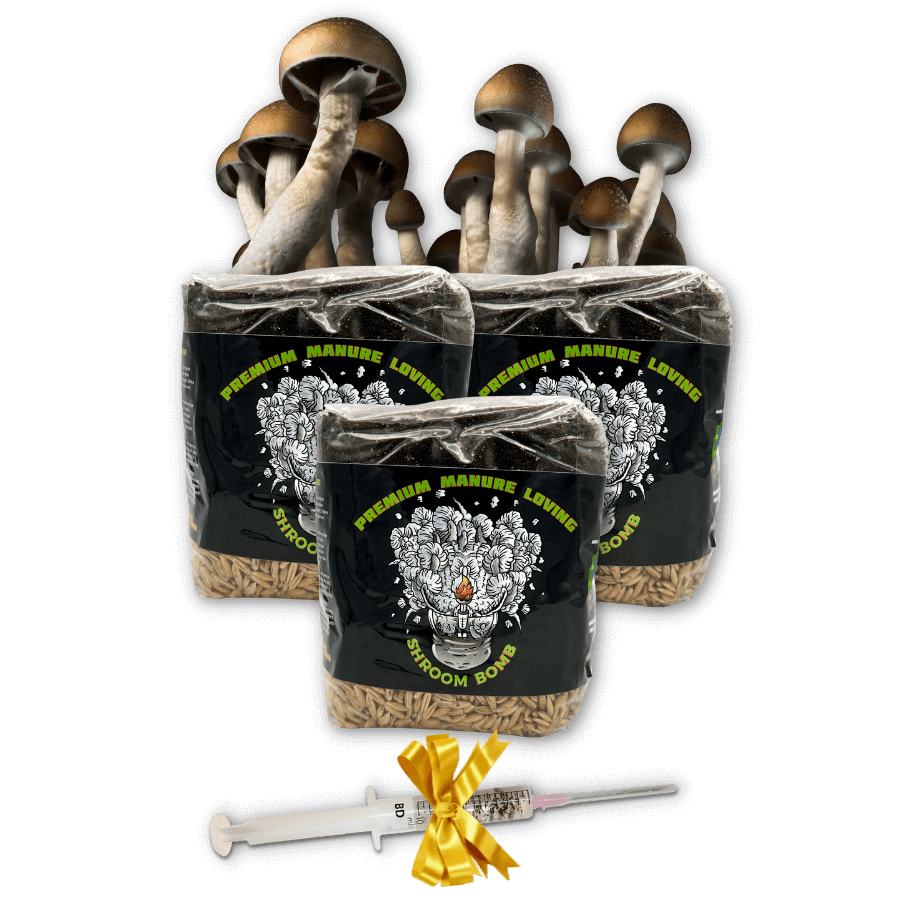Are you seeking a natural way to supercharge your mornings while supporting your overall well-being? Look…
What Are Wood Ear Mushrooms: Health Benefits and Nutrition Facts

Mushrooms have long held a special place in the world of culinary delights. From the delicate chanterelles to the robust portobello, these fungi offer a diverse range of flavors and textures to elevate a variety of dishes. Among this mushroom medley, wood ear mushrooms stand out not only for their unique appearance but also for their remarkable health benefits and impressive nutrition profile.
In this article, we will delve into the world of wood ear mushrooms, exploring what they are, their nutritional content, and the incredible health benefits they offer. Additionally, we’ll address potential side effects to ensure you have a comprehensive understanding of this fascinating fungus.
What Are Wood Ear Mushrooms?
Wood ear mushrooms, scientifically known as Auricularia auricula-judae, have earned their name due to their distinctive ear-like shape and rubbery texture. These mushrooms are commonly found in Asian cuisine, where they are known by various names, including “wood ear,” “black fungus,” “cloud ear,” or “tree ear” mushrooms. They belong to the Auriculariaceae family and are native to regions in Asia, particularly China.
These mushrooms are usually dark brown to black in color and have a thin, velvety texture on one side and a smoother surface on the other. They are typically dried and rehydrated before use, giving them a crunchy yet chewy texture when added to dishes.
Wood Ear Mushroom Benefits

-
Rich Source of Nutrients
This black fungus stands out as a nutritional powerhouse. Despite their minimal calorie and fat content, these fungi are rich in essential nutrients. A mere 100-gram serving of dried wood ear mushrooms offers approximately 50 calories, making them an excellent choice for those seeking to maintain a calorie-conscious diet. Beyond their low-calorie profile, they boast a plethora of beneficial compounds, including vitamins, minerals, and antioxidants. These mushrooms also have a unique texture, making them a versatile ingredient in various culinary applications, from soups to stir-fries, adding both nutrition and delightful flavors to dishes.
-
Abundant in Fiber
Wood ear mushrooms are not only a nutritional powerhouse but also an excellent source of dietary fiber, which plays a pivotal role in promoting digestive health. This fiber content is crucial for maintaining regular bowel movements, preventing the discomfort of constipation, and supporting the cultivation of a thriving gut microbiome. Dietary fiber acts as a prebiotic, nourishing the beneficial bacteria in your digestive system, thereby contributing to a robust immune system and improved overall well-being. By incorporating these Cloud Ears into your diet, you not only savor their delectable taste but also ensure your digestive system is functioning at its best, promoting long-term health and vitality.
-
Loaded with Antioxidants
Wood ear mushrooms boast a treasure trove of antioxidants, including flavonoids and phenolic compounds. These potent antioxidants play a pivotal role in shielding cells from oxidative stress, a key factor in the development of chronic diseases like cancer and heart disease. By incorporating these mushrooms into your diet, you’re indulging in their unique texture and flavor and proactively fortifying your body’s defense against these health threats. It’s a delicious way to enhance your overall well-being and reduce the risk of debilitating conditions.
-
Aid in Blood Sugar Control
Emerging research underscores the potential of wood ear mushrooms in contributing to blood sugar regulation. These mushrooms contain polysaccharides, compounds with demonstrated anti-diabetic properties. Studies have revealed their capacity to enhance insulin sensitivity and effectively lower blood glucose levels. This could hold promising implications for individuals grappling with diabetes or seeking proactive measures to maintain stable blood sugar. By including this mushroom variety in your diet, you can not only enjoy its culinary appeal but also harness the potential health benefits it offers in the realm of diabetes management and overall well-being.
-
Support Immune Function
Wood ear mushrooms are a rich source of beta-glucans, a polysaccharide known for its immune-boosting properties. Incorporating these mushrooms into your diet can potentially strengthen your body’s ability to respond to infections, bolstering your overall immune defenses.By savoring the unique taste and texture of Jelly Ears, you’re indulging in culinary delight while also tapping into their potential to bolster your immune system and enhance your resistance to various illnesses.
-
Wood Ear Mushrooms are Low in Cholesterol
For those mindful of their cholesterol levels and seeking heart-healthy dietary choices, wood ear mushrooms emerge as an excellent option. These mushrooms come naturally devoid of cholesterol, making them a welcome addition to cholesterol-conscious diets. Their versatility in culinary applications allows for creative and delicious integration into various meals. Incorporating wood ear mushrooms into your diet allows you to relish their unique taste and texture while making a smart dietary choice that aligns with your heart health goals, potentially contributing to improved cholesterol management and overall well-being.
-
Weight Management
Wood ear mushrooms offer a valuable advantage in weight management thanks to their unique nutritional profile. With their low-calorie content and high dietary fiber, these mushrooms are a smart choice for those aiming to control their weight. The abundant fiber in these mushrooms promotes a feeling of fullness, reducing the likelihood of overeating and assisting in calorie control. By incorporating these mushrooms into your meals, you not only savor their distinctive texture and flavor but also support your weight management efforts, making it easier to maintain a balanced and healthy diet while achieving your desired fitness goals.
-
Rich in Iron
Iron plays a crucial role in transporting oxygen in the bloodstream, preventing the onset of anemia. Wood ear mushrooms, while not exceptionally rich in iron, do contain a moderate amount of this essential mineral. This makes them a valuable addition to vegetarian and vegan diets, where sourcing iron from non-animal sources can be challenging. By incorporating wood ear mushrooms into their meals, individuals following plant-based diets can ensure they’re meeting their iron requirements, promoting overall health and well-being.
-
Wood Ear Mushrooms May Reduce Inflammation
Emerging research has piqued interest in the potential anti-inflammatory properties of compounds found in wood ear mushrooms. While more comprehensive investigations are needed, preliminary studies have hinted at their capacity to alleviate inflammation. This has the potential to benefit individuals grappling with conditions associated with chronic inflammation, such as arthritis or inflammatory bowel diseases. Incorporating wood ear mushrooms into one’s diet not only adds a unique culinary dimension but also opens the door to potential health advantages by potentially mitigating inflammation, thereby promoting overall well-being. However, it’s essential to consult with a healthcare professional for tailored guidance in managing specific inflammatory conditions.
-
Wood Ear Mushrooms Support Skin Health
The antioxidants abundant in wood ear mushrooms are not just beneficial internally but can also have external advantages for your skin. These antioxidants play a pivotal role in neutralizing harmful free radicals, which are known culprits in skin aging and damage. By incorporating wood ear mushrooms into your diet, you may effectively combat premature aging, leading to a more youthful and radiant complexion. These antioxidants can help protect your skin from environmental stressors, reducing the appearance of fine lines and wrinkles. While skincare routines are crucial, nourishing your skin from within with nutritious foods like wood ear mushrooms can be a valuable addition to your overall beauty regimen.
Wood Ear Mushroom Nutrition
Now, let’s take a closer look at the specific nutrients you can find in wood ear mushrooms:

Vitamins
This black fungus provide essential vitamins, including vitamin B2 (riboflavin) and vitamin D. Riboflavin is vital for energy metabolism, supporting your body’s energy production. Meanwhile, vitamin D is crucial for bone health, aiding in calcium absorption and maintaining strong bones. Including wood ear mushrooms in your diet not only adds unique flavors but also contributes to your overall nutritional well-being.
Minerals
These mushrooms contain important minerals like iron, potassium, and phosphorus. Iron is vital for oxygen transport, potassium helps regulate blood pressure, and phosphorus is essential for bone and teeth health.
Protein
While mushrooms are not a primary source of protein, they do contain some protein, making them a valuable addition to vegetarian and vegan diets.
Fiber
Jelly Ears, as highlighted earlier, are abundant in dietary fiber. This fiber promotes digestive health, regulates bowel movements, and imparts a sense of satiety, making them a valuable addition to a balanced diet.
Polysaccharides
Wood ear mushrooms are known for their high polysaccharide content, particularly beta-glucans, which have numerous health benefits, including immune system support.
Antioxidants
Wood ear mushrooms are brimming with antioxidants like flavonoids and phenolic compounds. These valuable antioxidants play a crucial role in safeguarding cells against the detrimental effects of free radicals, aiding in the maintenance of overall cellular health and potentially reducing the risk of chronic diseases.
Wood Ear Mushroom Side Effects
While wood ear mushrooms offer a plethora of health benefits, it’s essential to be aware of potential side effects:
Allergic Reactions: Some individuals may be allergic to mushrooms, including this one. If you experience symptoms like itching, swelling, or difficulty breathing after consuming them, seek immediate medical attention.
Digestive Issues: Eating too many wood ear mushrooms, especially if not properly rehydrated, can lead to digestive discomfort, including gas and bloating. It’s advisable to consume them in moderation and ensure they are adequately prepared.
Interactions with Medications: If you are taking medications for diabetes or blood clotting, consult your healthcare provider before adding this black fungus to your diet. These mushrooms may interact with certain medications, affecting their effectiveness.
Toxic Look-Alikes: Ensure that you are harvesting or purchasing genuine mushrooms, as there are poisonous mushrooms with similar appearances. It’s safer to buy them from reputable sources or consult an expert if foraging.
Final Thoughts on Wood Ear Mushrooms
Wood ear mushrooms, with their unique appearance and versatile culinary uses, are more than just a flavorful addition to your favorite dishes. They offer a wide range of health benefits, from supporting digestion and immune function to aiding in blood sugar control and providing essential nutrients.
However, it’s crucial to enjoy them in moderation and be aware of potential side effects, especially if you have allergies or are taking specific medications. As with any dietary change, it’s advisable to consult with a healthcare professional to ensure that wood ear mushrooms are a safe and beneficial addition to your diet. With proper knowledge and preparation, you can savor the taste and reap the rewards of these remarkable fungi in your culinary adventures.







Comments (0)